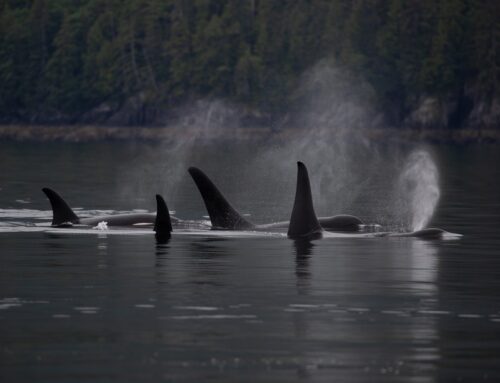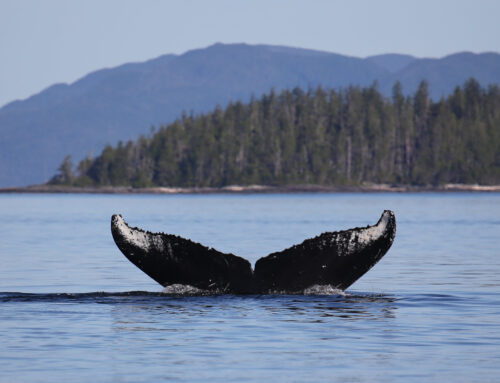It is difficult to describe the feeling that takes over my entire being when I am around whales, the fullness that my soul experiences, or the moment my shoulders relax, and my mind releases its worries and anxieties from everyday life.
It is in these moments that I feel myself slow down and truly connect to my surroundings.
I felt myself being lulled into this connected state as we slowly drifted by a sleeping humpback whale at the mouth of Lewis Channel, just beside where our research station sits on the southwestern shore of Fin Island.
If not for the subtle and occasional movements to raise its blowhole out of the water to breathe out and breathe in, it would be easy to miss this peaceful whale’s presence or misinterpret it as a log bobbing up and down at the surface. This resting behaviour at the surface of the water is something that we frequently observe on the north coast of British Columbia, though it is curiously not something that has been documented in the southern reaches of the province.
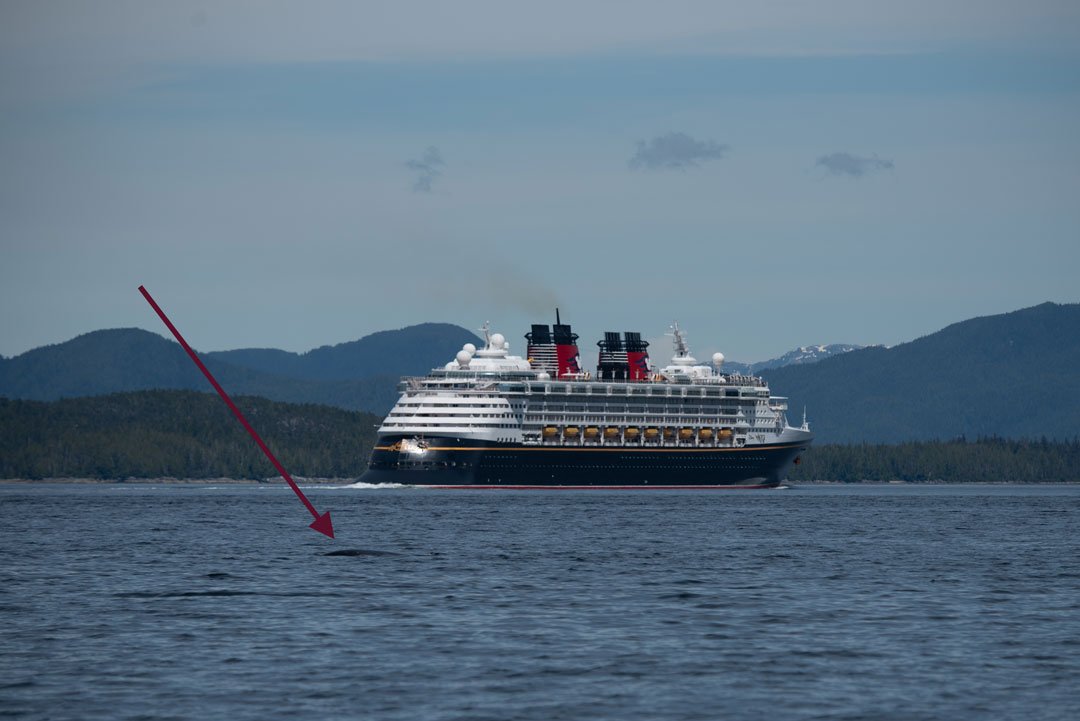
Over the course of the last few years and with the onset of the COVID-19 pandemic we experienced a drastic reduction in the number of vessels that routinely traffic our remote research area within the traditional territories of the Gitga’at First Nation. Cruise ships, fishing lodges, ecotourism ships, and many commercial fishing operations were all at once stopped and did not return to these waters for two years.
I found myself breathing easier during this unprecedented period and worrying less about the vulnerability of the whales who spend their time resting at the surface.
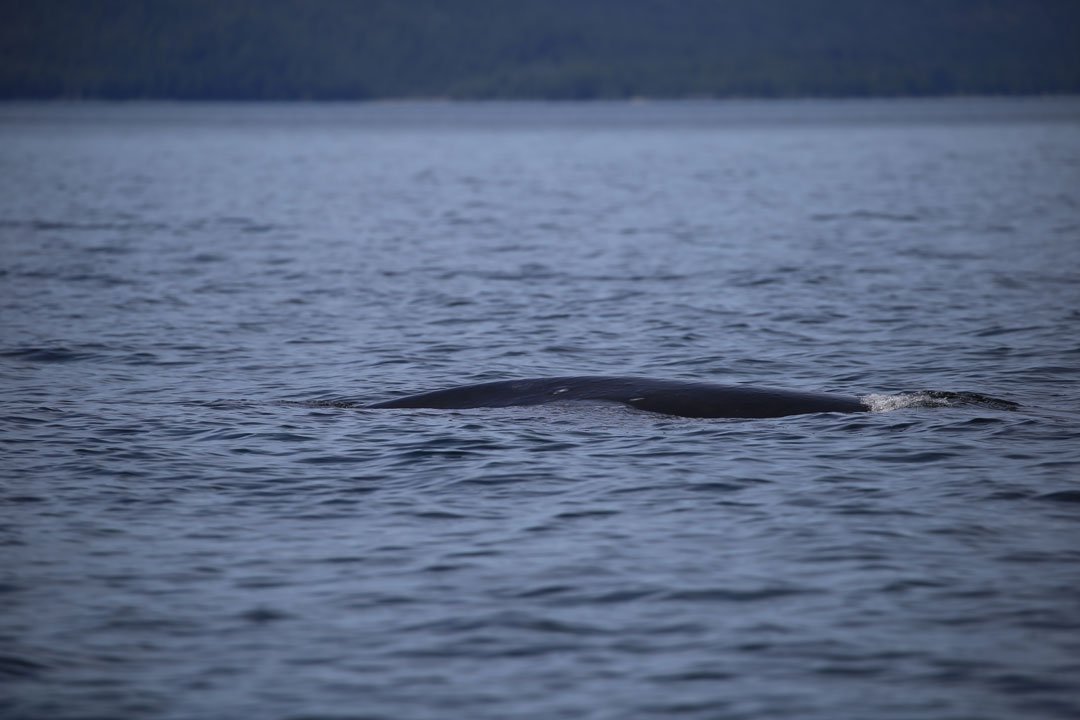
As I lowered the camera from my eyes and prepared to leave this peaceful whale behind the first cruise ship to return to this region appeared on the horizon. My heart sank into my stomach at the realization that this whale was fast asleep directly in the middle of a major shipping lane.
With the cruise ship approaching it became clear that this whale was not going to wake up on its own.
I turned to Jenn who was with me on our research boat the “Elemiah” and against all our instincts to let a sleeping whale lie we realized we may have that to wake this sleeping beauty up to give it the chance to get out of the way of this collision course.
The whale dove just in time.
I held my breath as the cruise ship passed and we waited for the whale to re-surface.
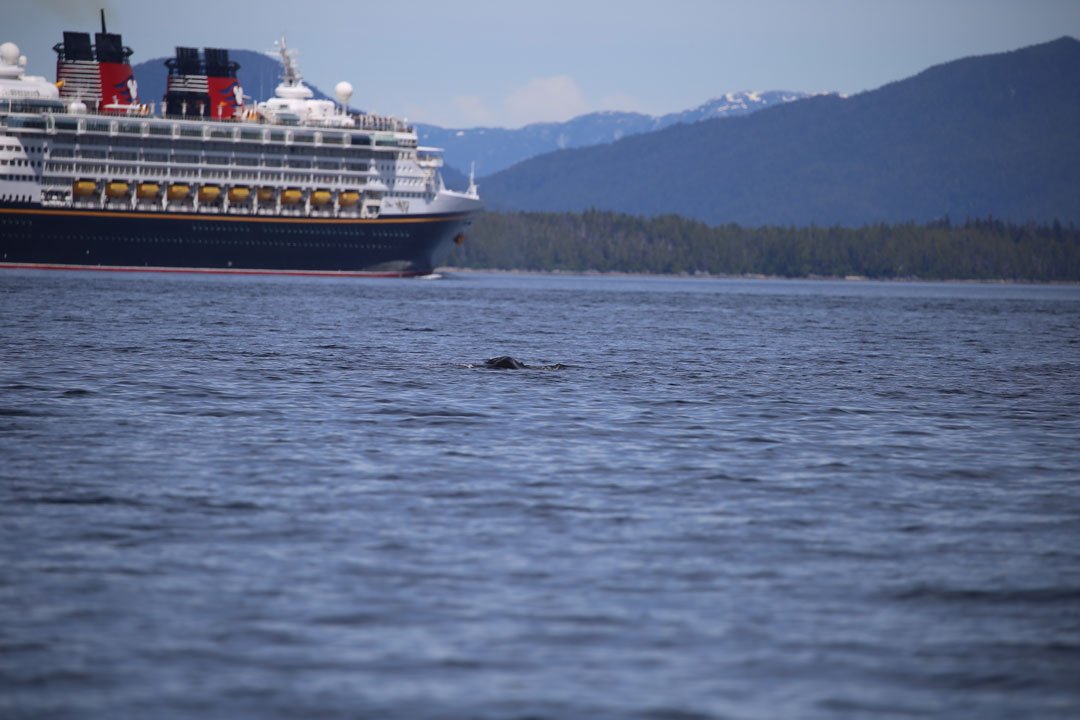
After what felt like an eternity the whale appeared and went right back to sleep in the same place, seemingly unaware of the danger it narrowly avoided. Safe for now, we left the whale to continue its rest.
As we left this encounter, I couldn’t help but to think ahead to the future. In just a few years’ time we will experience another influx of shipping traffic in this area as liquefied natural gas (LNG) begins being exported daily on tankers. With one tanker set to come in and one to go out every day I worry about the safety of the whales that rely on this productive feeding habitat annually to regain strength and energy following their long migration from their tropical breeding grounds.
We may not have much time, but we must find a way to protect these incredible beings from the consequences of human development.

